Spring 2023 Lecture Archive
* There will not be live-stream broadcast for this lecture, and it will not be recorded.
‡ There will be live-stream broadcast for this lecture, but it will not be recorded.
# This speaker will join remotely
^ Tentative in-person speaker
Spring 2023 Hoch Cunningham Environmental Lecture Schedule
-
Jan. 19, 2023:
Growing Synthetic Biology: Nature and Technology at Scale (Christina Agapakis) -
Jan. 26, 2023:
Forever Chemicals and Immediate Responses: Addressing PFAS in our Environment (Martin Suuberg) -
Feb. 2, 2023:
One Health: Addressing the Neglected Tropical Diseases (Karen Kosinski) -
Feb. 9, 2023:
Kill Your Lawn (Mark Richardson) -
Feb. 16, 2023:
Advancing Truly Sustainable Diets Requires a Four-Pillar Approach (Nicole Tichenor Blackstone) -
Mar. 2, 2023:
Union Pasts and Environmental Futures in the Flint Water Crisis (Elena Sobrino) -
Mar. 9, 2023:
Productive Tension: Hands-On Steps to Fossil Fuel Abolition (Kendra Ford and Isaac Petersen) -
Mar. 16, 2023:
Boston Metal: the Technology to Decarbonize the Steel Industry (Tadeu Carneiro) -
Mar. 30, 2023:
All Our Kin: Ecologies of Justice in Colombia (Kimberly Theidon) -
Apr. 6, 2023:
Feasting Scripts: The Haptics of Debt and Fantasy on Sri Lanka’s Plantations (Mythri Jegathesan) -
Apr. 13, 2023:
Mice Against Ticks: Fighting Lyme Disease with Engineered Mice (Kevin Esvelt) -
Apr. 20, 2023:
Strong Enough to Remove Dirt and Skin: Soap, Violence, and Race in Guerrero, Mexico (Jayson Porter) -
Apr. 27, 2023:
Protecting the Jewels of the Night: Firefly Life, Sex and Death (Sara Lewis)
Spring 2023 Hoch Cunningham Environmental Lecture Information
Growing Synthetic Biology: Nature and Technology at Scale
Speaker: Christina Agapakis, Ginkgo Bioworks
Thursday, January 19, 2023 | 12-1 pm EST
Location: Curtis Hall Multipurpose Room (474 Boston Avenue, Medford, MA)
Lecture Recording – Jan. 19
Synthetic biology seeks to make biology easier to engineer, develop new medicines, and produce food and everyday materials more sustainably. Although holding great promise and a flourishing ecosystem of research, businesses, and new products, the field continues to be plagued by one major question: will it scale? How might this industry which is based on living systems approach scale differently than previous waves of industrialization? What would new visions for distributed manufacturing offer this emerging field and the relationship between nature and technology?

Christina Agapakis is a synthetic biologist, writer, and artist and is the creative director of Ginkgo Bioworks, a biological design company based in Boston. Her work brings together biologists, engineers, designers, artists, and social scientists to explore the future of biotechnology, from reviving extinct flowers to tasting human cheese.
Forever Chemicals and Immediate Responses: Addressing PFAS in our Environment
Speaker: Martin Suuberg, former Commissioner of Massachusetts Department of Environmental Protection and Executive Director of the Northeast Waste Management Officials Association (NEWMOA)
Thursday, January 26, 2023 | 12-1 pm EST
Location: Curtis Hall Multipurpose Room (474 Boston Avenue, Medford, MA)
Lecture Recording – Jan. 26
This lecture will review PFAS (widely-used, long-lasting chemicals), the growing data on these ubiquitous compounds, government responses to date, and what future measures will be considered to protect public health and the environment.
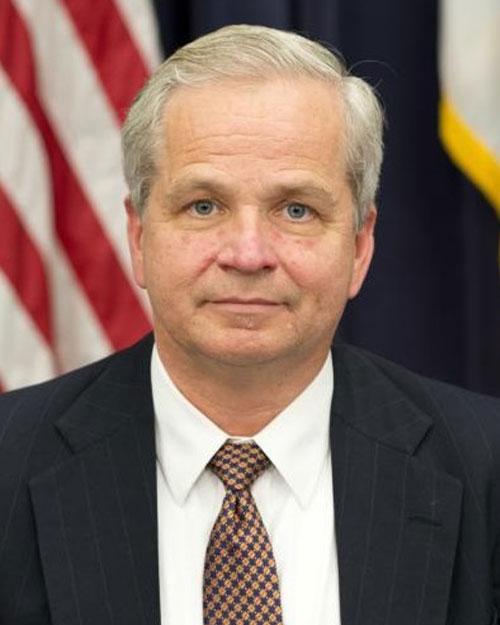
Martin Suuberg has nearly 40 years of experience as a lawyer and manager in federal and state environmental and natural resource agencies, with over 20 years of service in the Massachusetts Department of Environmental Protection (MassDEP). In January 2015, Martin was appointed the Commissioner of MassDEP and served in that role until January 2023. During his tenure, the agency developed and implemented drinking water and contaminated site clean-up standards for PFAS, developed new regulatory approaches to addressing climate change, and enhanced efforts to address Environmental Justice and equity issues. Mr. Suuberg is the newly appointed Executive Director of the Northeast Waste Management Officers Association (NEWMOA). NEWMOA is a non-profit, non-partisan, interstate association of state environmental agency programs. These programs span across many environmental issues, including addressing pollution prevention, materials management, toxics use reduction, and solid and hazardous waste. Through the NEWMOA network and forum, collaborative regional efforts allow for better solving of environmental issues.
One Health: Addressing the Neglected Tropical Diseases
Speaker: Karen Kosinski, Department of Community Health at Tufts University
Thursday, February 2, 2023 | 12-1 pm EST
Location: Curtis Hall Multipurpose Room (474 Boston Avenue, Medford, MA)
Please note, this lecture was not recorded.
The One Health approach focuses on human health, animal health, and ecosystem health; One Health uses a multidisciplinary, collaborative strategy to prevent and address health threats and it provides an excellent framework to address many of the Neglected Tropical Diseases (NTDs). The NTDs are a group of roughly 20 conditions that primarily affect people living in tropical areas that are impoverished. In this lecture, we'll talk about some key One Health principles, then we’ll go over the NTDs, and we'll end by considering the case of controlling schistosomiasis, one of the NTDs.
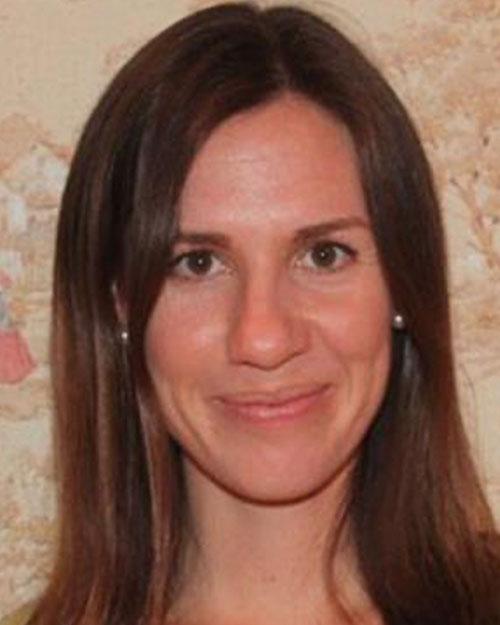
Karen Kosinski is a Senior Lecturer in the Department of Community Health at Tufts. She teaches courses that intersect with multiple disciplines in equity-oriented fields like global health, environmental health, environmental justice, and One Health. She’s enthusiastic about training undergraduate students to conduct research and publish. She has experience working on the design, implementation, and evaluation of techniques to prevent urogenital schistosomiasis (UGS) and on risk mapping to understand the distribution of UGS in rural Ghana.
Kill Your Lawn
Speaker: Mark Richardson, New England Botanic Garden at Tower Hill
Thursday, February 9, 2023 | 12-1 pm EST
Location: Curtis Hall Multipurpose Room (474 Boston Avenue, Medford, MA)
Lecture Recording – Feb. 9
According to NASA, more surface area in the United States is covered by lawn than by any other single irrigated crop. Lawns are resource-heavy, requiring irrigation, fertilizer, and pesticides to thrive in New England. Learn why you should “kill your lawn” and how to replace it with beautiful and environmentally-friendly native plantings.
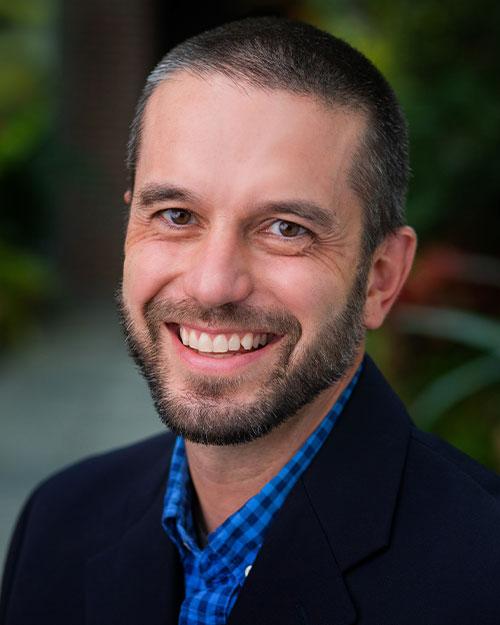
Mark Richardson is the Director of Horticulture for New England Botanic Garden at Tower Hill. He helped lead recent garden-wide construction efforts, including the building of the Ramble, the garden's recently opened family garden. Mark served previously as Botanic Garden Director for the Native Plant Trust, where he oversaw Garden in the Woods and Nasami Farm native plant nursery. He has a passion for ecological horticulture and native plants and is the co-author of Native Plants for New England Gardens (Globe Pequot, 2018). He holds a Master's of Science in Public Horticulture from the University of Delaware, and attended the University of Rhode Island for his undergraduate degree.
Advancing Truly Sustainable Diets Requires a Four-Pillar Approach
Speaker: Nicole Tichenor Blackstone, Friedman School of Nutrition Science and Policy at Tufts University
Thursday, February 16, 2023 | 12-1 pm EST
Location: Curtis Hall Multipurpose Room (474 Boston Avenue, Medford, MA)
Please note, this lecture was not recorded.
The Leading A Sustainability Transition In Nutrition Globally (LASTING) Project aims to produce evidence-based recommendations, methods, and metrics for integrated sustainability assessment of dietary patterns. Our four-pillar approach to sustainability encompasses environmental, health, economic, and social outcomes. This lecture will give an overview of the innovative, interdisciplinary approach and some preliminary results of the LASTING Project being led by Dr. Nicole Tichenor Blackstone at the Friedman School of Nutrition Science at Policy at Tufts University.
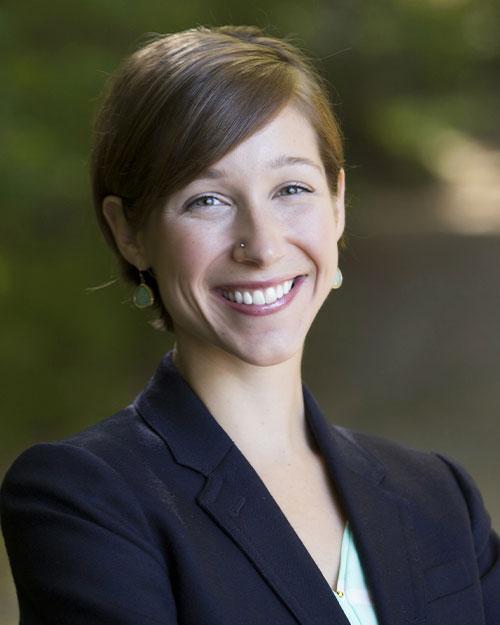
Nicole Tichenor Blackstone is an Assistant Professor in the Division of Agriculture, Food, and Environment at the Friedman School of Nutrition Science and Policy at Tufts University. To date, her research has explored the environmental and social implications of diverse production systems (e.g., grass-fed beef, cultivated meat, fruits and vegetables), human diets, and regional food systems. Currently, she leads the Leading a Sustainability Transition in Nutrition Globally (LASTING) Project, which aims to produce evidence-based recommendations, methods, and metrics for integrated sustainability assessment of dietary patterns. Dr. Blackstone earned her Ph.D. and M.S. from the Friedman School in the Agriculture, Food, and Environment program. During her graduate training, she was the recipient of multiple fellowships, including the Switzer Environmental Leadership Fellowship. She holds a B.A. in Philosophy and Religious Studies from the University of Kansas. Dr. Blackstone also has experience in food policy spanning the local to national levels, through previous positions with the Douglas County Food Policy Council (KS) and National Family Farm Coalition. She collaborates across disciplines and with stakeholders to co-create more equitable, just, and sustainable food systems.
Union Pasts and Environmental Futures in the Flint Water Crisis
Speaker: Elena Sobrino, History, Anthropology, Science, Technology and Society, Massachusetts Institute of Technology (MIT)
Thursday, March 2, 2023 | 12-1 pm EST
Location: Curtis Hall Multipurpose Room (474 Boston Avenue, Medford, MA)
Online Viewer Livestream Registration – Mar. 2
Eight years ago, a water crisis hit Flint, MI, leaving residents to deal with damaged infrastructure, dependency on bottled water, and the toxic effects of lead and other contaminants. This ongoing environmental disaster is embedded in a broader crisis of deindustrialization in Flint, where thousands of car manufacturing jobs have disappeared in recent decades. From the famous Sit-Down Strike of 1936 that led to the creation of the United Auto Workers (UAW) to the most recent UAW strike of 2019, Flint has a long tradition of organizing to work out collective meanings of hope, solidarity, and resistance. Although union concerns and environmentalist concerns often appear disconnected, this talk will show how in fact labor struggles past and present have become symbolically important in Flint's fight for clean water.
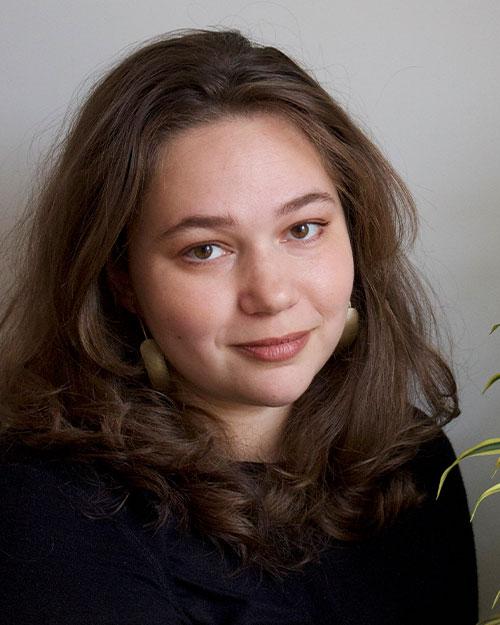
Elena Sobrino is a cultural anthropologist who studies environmental politics in postindustrial communities. As a PhD candidate in the History, Anthropology, Science, Technology and Society program at MIT, Elena is currently working on a dissertation project that explores how familial identities and sentiments shape the pursuit of economic and racial justice in Flint, Michigan, a community confronting a toxic water crisis that poses long-term threats to public health and infrastructure. Before coming to MIT, Elena worked in local crisis management during the Flint water crisis. As assistant director of information and planning with the American Red Cross, she distributed bottled water and filters, worked in volunteer intake, compiled reports and briefings, and served as a field worker with the Centers for Disease Control to gather information about water access and mental health in Flint households. Elena holds a BA in cultural anthropology and music from the University of Michigan-Flint.
Productive Tension: Hands-On Steps to Fossil Fuel Abolition
Speakers: Kendra Ford and Isaac Petersen, No Coal No Gas
Thursday, March 9, 2023 | 12-1 pm EST
Location: Curtis Hall Multipurpose Room (474 Boston Avenue, Medford, MA)
Online Viewer Livestream Registration – Mar. 9
No Coal No Gas (NCNG) is a region-wide network of people who share three campaign goals: building a community of dissidents, showing what is possible, and shutting down New England’s last large coal-fired power plant. NCNG’s progress has been deeply rooted in studying, creating, and being willing to live with productive tension—a force that both pulls together and pushes apart. In this talk, Kendra Ford and Isaac Petersen will discuss power, pressure, and culture as key components of that productive tension. They share how analysis of those components grows NCNG’s strategy and resilience, plus applications for the broader movement towards abolishing fossil fuels.
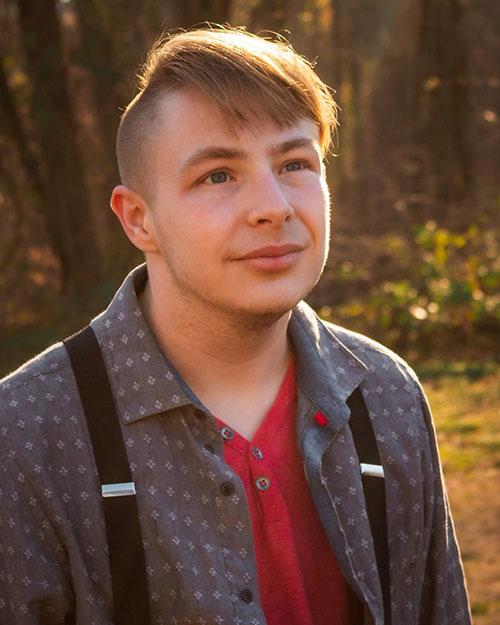
Isaac Brooke Petersen (he/they) is an activist, trainer, and poet. His first organizing experience was through his union as a graduate student at San Diego State University, where he earned his MFA in creative writing. Since 2018, he has lived on Massachusett land in Somerville, where he campaigned for trans rights and for drivers’ licenses for undocumented folks before throwing down with No Coal No Gas in late 2019. He makes a living as an axe-throwing coach and spends his free time with poetry and fiber arts.
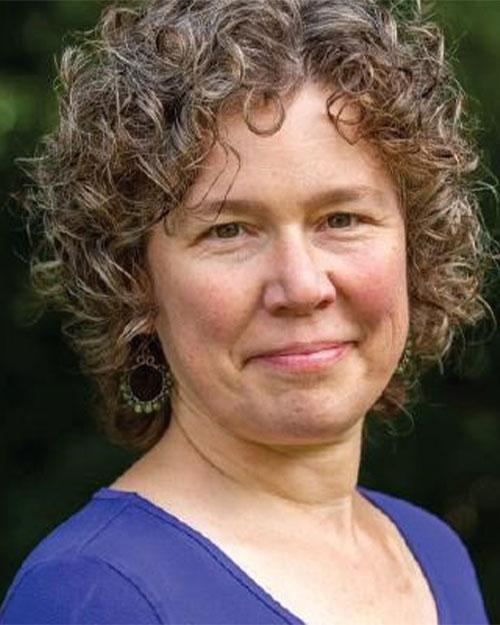
In 2019, Kendra Ford received an email from 350NH inviting folks to a direct action training at the library, and became part of the campaign to close the last coal plant in New England. In 2022, Kendra left a twenty-year ministry with Unitarian Universalist Congregation in Exeter, NH to join the 350NH staff. She is a trained facilitator of Joanna Macy’s Work The Reconnects, a set of practices to support climate (and all) activists facing the hardest realities in our beautiful world, and has led groups for 350NH, at the public library, and for multiple congregations. She lives in Portsmouth, NH with her husband, their nine-year-old, a ridiculous number of houseplants.
Boston Metal: the Technology to Decarbonize the Steel Industry
Speaker: Tadeu Carneiro, Boston Metal
Thursday, March 16, 2023 | 12-1 pm EST
Location: Curtis Hall Multipurpose Room (474 Boston Avenue, Medford, MA)
Online Viewer Livestream Registration – Mar. 16
Join Tadeu Carneiro, the Chairman & CEO of Boston Metal, for a lecture about how the company is developing a breakthrough technology with the potential to eliminate 10% of global carbon emissions. The company’s patented molten oxide electrolysis (MOE) platform replaces fossil fuels with renewable electricity to convert all iron ore grades into high-purity liquid metal through a cost-efficient, one-step process. There are zero carbon emissions or harmful byproducts released during the process, only oxygen. With a highly modular and scalable solution, Boston Metal is enabling steel producers to meet the growing global demand for low-cost, green steel while creating more economic opportunities across the steel value chain. Backed by leading investors and led by a world-class team of scientists and metals industry veterans, Boston Metal is the only company with a direct, scalable approach to green the most important engineering material in the world.
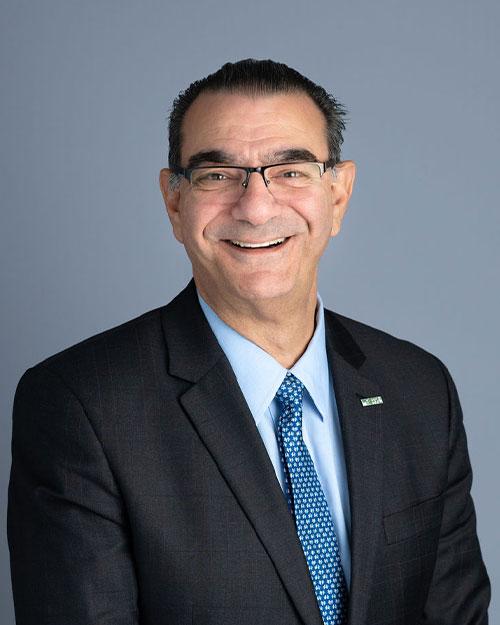
Tadeu Carneiro is Chairman & CEO of Boston Metal, the company commercializing a revolutionary steel decarbonization technology that uses clean electricity instead of fossil fuels to produce steel, tackling 10% of the world’s carbon emissions. Tadeu has over 40 years of metals industry experience, with expertise in global strategy, technology development, and customer-focused growth. As CEO of CBMM, the Brazilian niobium mining and metals company, he grew revenue from $100M to over $2B and led a global program that saw the niobium market increase by more than eightfold. At Boston Metal, Tadeu has overseen three funding rounds totaling over $210M and team growth from single digits to 100+ employees. A metallurgical engineer, Tadeu is the lead independent director at Ivanhoe Mines (copper, zinc, nickel, and platinum group metals) and is an invited lecturer at the Department of Materials Science and Engineering at MIT. He is also a member of the advisory board of the Brigham and Women’s Hospital Heart and Vascular Center in Boston, MA.
All Our Kin: Ecologies of Justice in Colombia
Speaker: Kimberly Theidon, Henry J. Leir Professor in International Humanitarian Studies, The Fletcher School of Global Affairs, Tufts University
Thursday, March 30, 2023 | 12-1 pm EST
Location: Curtis Hall Multipurpose Room (474 Boston Avenue, Medford, MA)
Online Viewer Livestream Registration – Mar. 30
In 2016, the Colombian government and the Fuerzas Armadas Revolucionarias de Colombia signed Peace Accords that marked the official end of the longest armed conflict in the Western Hemisphere. More than fifty years of war left 200,000 people dead, 150,000 disappeared, 7 million internally displaced, and 8.6 million registered victims. The environment itself was also declared a victim of the conflict. From toxic chemicals to land mines, from rivers tinged with blood to vengeful mountain gods, from bombed oil pipelines to deforestation, there are multiple environments and actors that play a role in post-war reconstruction and coexistence. To capture these assemblages during this lecture, Kimberly Theidon will focus on the Atrato River, Colombia's longest and most-polluted waterway. On this river, lifeways and waterways converge; as the Atrato winds through the Afro-Colombian, Indigenous and peasant communities of Urabá, the river gives and is life.
This lecture is co-sponsored by Tufts Latin American Studies and Tufts Department of Romance Studies, and is also part of the Ecologies of Justice series.
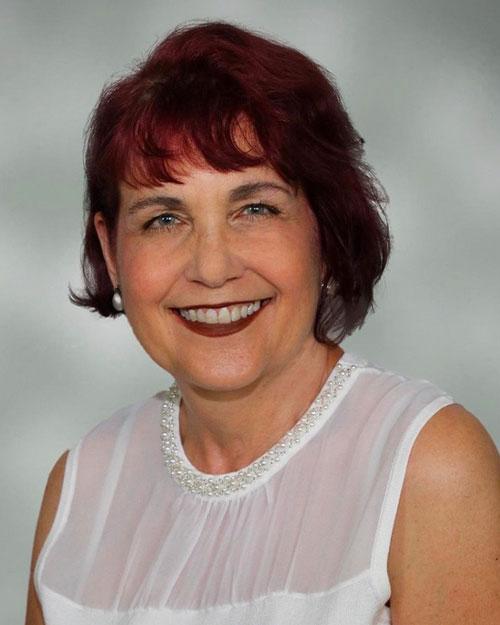
Kimberly Theidon is a medical anthropologist focusing on Latin America. She is the author of many articles, commissioned reports, three books and an edited volume. Entre Prójimos: El conflicto armado interno y la política de la reconciliación en el Perú (Instituto de Estudios Peruanos, 1st edition 2004; 2nd edition 2009) was awarded the Latin American Studies Association 2006 Premio Iberoamericano Book Award Honorable Mention for outstanding book in the social sciences published in Spanish or Portuguese. Her second book, Intimate Enemies: Violence and Reconciliation in Peru (University of Pennsylvania Press, 2012) was awarded two 2013 Honorable Mentions from the Washington Office on Latin America-Duke University Libraries Book Award for Human Rights in Latin America, and the Eileen Basker Prize from the Society for Medical Anthropology for research on gender and health. In her most recent book, Legacies of War: Violence, Ecologies and Kin (Duke University Press, 2023) Theidon considers the multiple environments in which conception, pregnancy, and childbirth unfold, reimagining harm to account for the impact of armed conflict on individual people as well as on more-than-human lives, bodies, and ecologies. Her co-edited volume, Challenging Conceptions: Children Born of Wartime Rape and Sexual Exploitation(Oxford University Press (2023) offers case studies on children born of wartime rape, their mothers, families and communities, aiming to contribute to more humane policy responses and interventions. She is currently completing Theaters of War: Working with Former Combatants in Colombia.
Feasting Scripts: The Haptics of Debt and Fantasy on Sri Lanka’s Plantations
Speaker: Mythri Jegathesan, Department of Anthropology, Santa Clara University
Thursday, April 6, 2023 | 12-1 pm EST
Location: Curtis Hall Multipurpose Room (474 Boston Avenue, Medford, MA)
Online Viewer Livestream Registration – Apr. 6
This talk will examine how select Hollywood films, shot in and around Sri Lanka's plantations during the fifty years before the country's civil war (1934-1984), uphold the plantation's narratives of debt and fantasy. Sri Lanka's plantation industry affords distinct labor histories and practices of worker exploitation and caste oppression to the film industry that are both materially and speculatively generative. Thinking with Sri Lanka's plantation infrastructures and built environments in these films, this talk considers how their scripts of feasting on the plantation continue to feed Sri Lanka's known trajectories of ethnonationalist violence and unresolved demands for political justice.
This lecture is co-sponsored by Tufts Department of Anthropology and Center for the Humanities at Tufts.
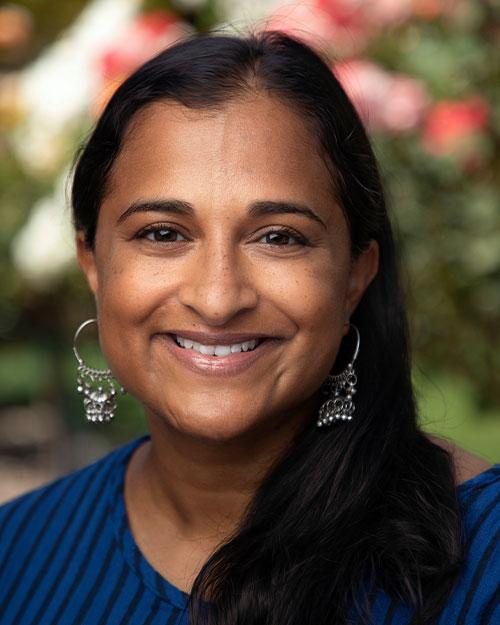
Mythri Jegathesan is a cultural anthropologist and associate professor in the Department of Anthropology at Santa Clara University. Her research interests include plantations, tea, work, gender, human rights, and minority politics. She earned her PhD in Anthropology from Columbia University and her book, Tea and Solidarity: Tamil Women and Work in Postwar Sri Lanka (2019), winner of the 2020 Diana Forsythe Prize and 2021 Michelle Z. Rosaldo Award, is an ethnography of plantation life and work in the context of ethnonationalist violence and civil war in Sri Lanka. Her work has appeared in Himal Southasian, Cultural Anthropology, Feminist Anthropology, Commoning Ethnography, e-flux, and the Colomboscope Interdisciplinary Art Festival.
Mice Against Ticks: Fighting Lyme Disease with Engineered Mice
Speaker: Kevin Esvelt, Massachusetts Institute of Technology (MIT)
Thursday, April 13, 2023 | 12-1 pm EST
Location: Curtis Hall Multipurpose Room (474 Boston Avenue, Medford, MA)
Online Viewer Livestream Registration – Apr. 13
Mice Against Ticks is an open, community-guided project which aims to safeguard islands like Martha's Vineyard and Nantucket by stably reducing the incidence of tick-borne disease. This long-lasting, ecological solution should reduce the number of infected ticks, prevent new human infections and profoundly impact this growing public health challenge. The communities of Martha's Vineyard and Nantucket are directing this MIT based project to immunize the local mouse population in order to permanently break the transmission cycle between white-footed mice and ticks. Attend this talk to learn more about the underlying technology and unique approach to fighting tick-borne disease with the help of island communities.
This lecture is co-sponsored by the Tufts Center for Animals and Public Policy and is part of the Tufts Animal Matters Seminar Series.
Please note: Joanna Buchthal, originally scheduled to give this lecture, will unfortunately not be able to join us.
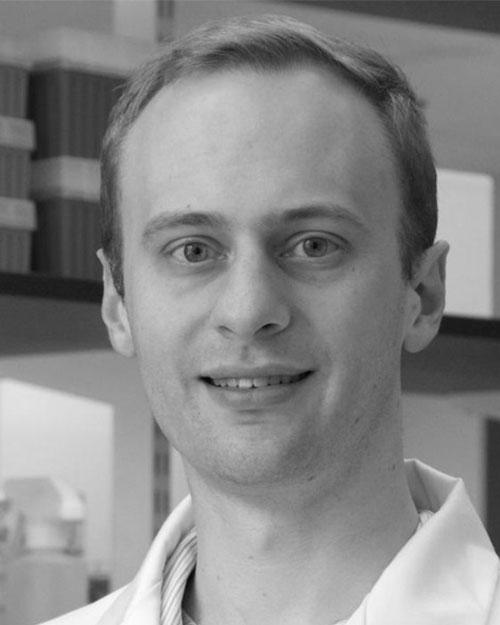
Kevin Esvelt is the director of the Sculpting Evolution group, which invents new ways to study and influence the evolution of ecosystems. Prior to joining the MIT Media Lab, Esvelt wove many different areas of science into novel approaches to ecological engineering. He invented phage-assisted continuous evolution (PACE), a synthetic microbial ecosystem for rapidly evolving biomolecules, in the laboratory of David R. Liu at Harvard University. At the Wyss Institute, he worked with George Church to develop the CRISPR system for genome engineering and regulation, and he began exploring the use of bacteriophages and conjugation to engineer microbial ecosystems. Esvelt is credited as the first to describe how CRISPR gene drives could be used to alter the traits of wild populations in an evolutionarily stable manner. By emphasizing universal safeguards and early transparency, he has worked to ensure that community discussions always precede and guide the development of technologies that will impact the shared environment.
Strong Enough to Remove Dirt and Skin: Soap, Violence, and Race in Guerrero, Mexico
Speaker: Jayson Porter, Institute at Brown for Environment and Society (IBES)
Thursday, April 20, 2023 | 12-1 pm EST
Location: Curtis Hall Multipurpose Room (474 Boston Avenue, Medford, MA)
Online Viewer Livestream Registration – Apr. 20
In chemistry terms, making soap is a delicate process of crafting a solution strong enough to remove dirt but not strong enough to remove the skin. In the political economy and ecology of soap making, however, while oilseed enclaves tend to be gilded and clean on the outside, underneath they can burn the poorest and most exposed producers of the raw materials. In the case of twentieth-century Guerrero, coconut and sesame-producing ejidos (communal agricultural land) cultivated the biochemical fuel for the Mexican Miracle – yet were singed by the industrialization and internationalization of their crops. Even before the Green Revolution, the soap industry helped drive rural modernization in Mexico. But did the soap industry benefit oilseed farmers? This talk with explore these topics and more.
This lecture is co-sponsored by Tufts Latin American Studies and Tufts Department of Romance Studies, and is also part of the Ecologies of Justice series.
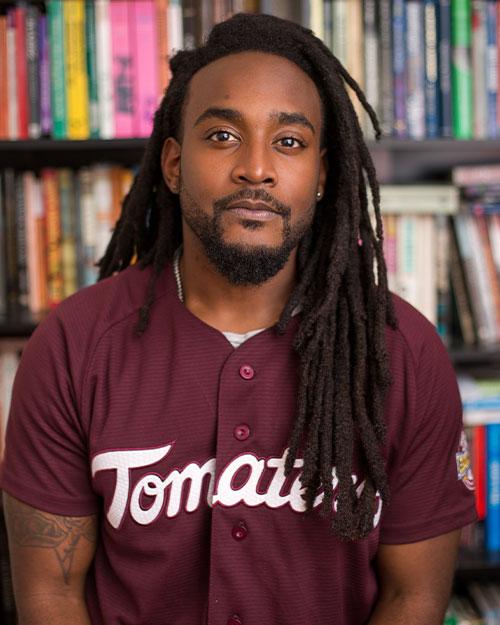
Jayson Maurice Porter is a Voss Postdoctoral Research Associate at the Institute at Brown for Environment and Society (IBES). His research specializes in food systems, environmental politics, science and technology studies, and racial ecologies in Mexico and the Americas. Jayson is also an editorial board member for both the North American Congress for Latin America (NACLA) and Plant Perspectives, a staff blogger for Black Perspectives, and an environmental specialist for Noria Research's Mexico and Central America Program.
Protecting the Jewels of the Night: Firefly Life, Sex and Death
Speaker: Sara Lewis, Tufts University
Thursday, April 27, 2023 | 12-1 pm EST
Location: Curtis Hall Multipurpose Room (474 Boston Avenue, Medford, MA)
Online Viewer Livestream Registration – Apr. 27
Fireflies are surely among our greatest ambassadors for Earth's natural magic. For centuries their ethereal beauty has sparked wonder, inspiring poets, artists, and children of all ages. This talk will look back on a career spanning basic research into the secrets of firefly sex to current global efforts aimed at conserving these charismatic insects. Come experience the firefly magic and explore their remarkably diverse lifestyles, discover how they evolved their light-producing talents, and learn how human activities are threatening to extinguish their bright lights.
This lecture is co-sponsored by the Department of Biology.
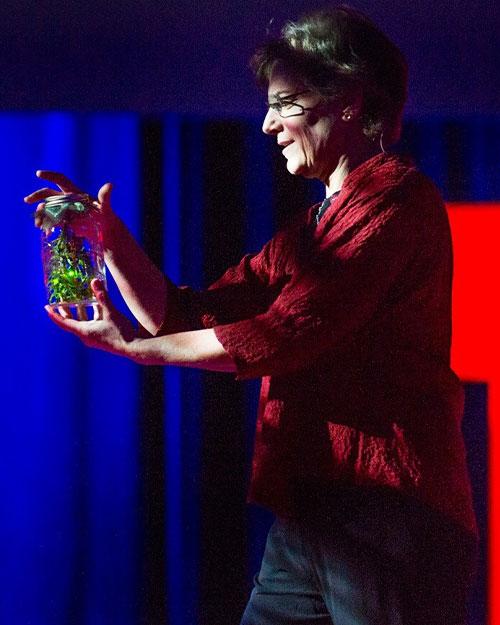
Sara Lewis is an ecologist and Professor of Biology emerita at Tufts who has spent the past thirty years studying insect behavior, ecology, and evolution. She currently coordinates global firefly conservation efforts as co-chair of the IUCN Firefly Specialist Group,. In addition to writing numerous scientific articles, Prof. Lewis has given a TED talk and has written popular articles for Scientific American, Undark, CNN, The Guardian, and National Wildlife. Her work has been featured in the New York Times, Wall Street Journal, Washington Post, and BBC, along with numerous radio shows and podcasts. She is also the author of Silent Sparks:The Wondrous World of Fireflies, an entertaining and highly accessible journey into their luminous lives.